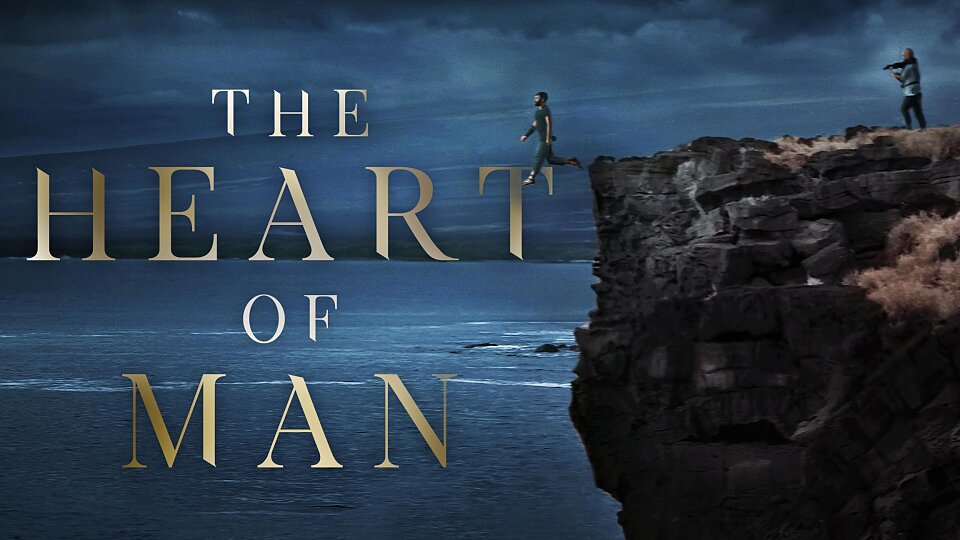The Heart of Man: Standing at the Cliff of Choice
“But the Hebrew word, the word timshel—‘Thou mayest’— that gives a choice. It might be the most important word in the world. That says the way is open.” – John Steinbeck, East of Eden
And so here you are. Standing at the edge of the cliff. A cliff of your own making. And for all the arguments about the concept of free will, you always have a choice. But it doesn’t always feel that way, does it? Nearly every time you’ve found yourself here at the precipice, you’ve jumped, right? That sure doesn’t feel like timshel. That doesn’t feel like choice. Sometimes you’ve even fought it for a while. But many times, even though you knew the consequences, you jumped. That’s the drill we all know. Very few things in life feel as familiar as that step off the cliff. The way back from the edge is shockingly simple. But at this place in the journey, at the brink, it’s very hard to see or embrace. You aren’t listening. Choice seems almost irrelevant. Perhaps you have to go over the cliff one more time before you can be shaken awake to the reality of the powerfully simple way home. Often here at the edge of the cliff we think it’s only a three-foot drop – it isn’t until we step off the ledge that we discover the turbulent ocean is sixty feet down. Henri Nouwen describes this moment so well in his book “The Return of the Prodigal.”
LEAVING HOME “Somehow I have become deaf to the voice that calls me the Beloved, have left the only place where I can hear that voice, and have gone off desperately hoping that I would find somewhere else what I could no longer find at home.
Leaving home is, then, much more than a historical event bound to time and place. It is a denial of the spiritual reality that I belong to God with every part of my being, that God holds me safe in an eternal embrace, that I am indeed carved in the palms of God’s hands and hidden in their shadows. Leaving home is living as though I do not yet have a home and must look far and wide to find one.”
And so, believing we must look for a home, we find ourselves at our own cliff. Below is a description of how sin works. If you can learn this destructive cycle, you will learn how to avoid much pain from life’s cliffs. Out of the blue, something triggers your attention. A billboard, a memory, a hurtful statement, a social media comment, the wisp of an image. It doesn’t have to be much. Just enough to catch your heart off-guard. Just enough to catch your eye—something seditiously attractive—enough to set the hook. Then your self-story begins to replay itself. Your shame forms the lies and predicts the outcome. “Here we go again. Every time this hits, I will fail. Sure, I’ll fight it for a moment or two. Or maybe even a long while. But in the end, I will lose. Every time.” Then the temptation hits. A real opportunity. A choice to actively do something wrong. It’s no longer just a vague potential in your head. Here comes the whisper inside you: “You know you want it. You deserve it. You have not been treated well by God or the significant others in your life. And God does not seem to be able to help you with this stuff anyway. Just say ‘yes,’ and the gears will get rolling. You don’t even have to admit to yourself that you made the choice. Just say ‘yes.’” Now the crime is set in motion. There is an actual place and time or perhaps even a person. Next, you resist. Pitifully, this is the most laughable part of the story. You actually think you can fight it. Well, part of you does anyway. Here’s the insanity of this part of the transaction. You are trying to fight the sin you’ve already given yourself permission to carry out. And the longer you fight it, the more the anticipated pleasure of the event increases. What a trap. Unless and until this comes to the light, you will always, inevitably, invariably lose. You will act out. Period. If you have chosen not to disclose where you are, you will step off the cliff. Yet even then the Father is not done. He has not washed His hands of this, or you. He never will. Henri Nouwen continues the story in The Return of the Prodigal below, reminding us that God is never done.
ON YOU MY FAVOR RESTS “God has never pulled back his arms, never withheld his blessing, never stopped considering his son the Beloved One. But the Father couldn’t compel his son to stay home. He couldn’t force his love on the Beloved. He had to let him go in freedom, even though he knew the pain it would cause both his son and himself. It was love itself that prevented him from keeping his son home at all cost. It was love itself that allowed him to let his son find his own life, even with the risk of losing it.
Here the mystery of life is unveiled. I am loved so much that I am left free to leave home. The blessing is there from the beginning. I have left it and keep on leaving it. But the Father is always looking for me with outstretched arms to receive me back and whisper again in my ear: ‘You are my Beloved, on you my favor rests.’”
Even here at the cliff, even though you are free to leave home, the Father is calling you “Beloved.” He has given you “timshel,” a true and real choice. But will-power and white-knuckled resistance have nothing to do with choice. They are a feeble coping mechanism. Timshel is actually the choice to trust others with you or to trust yourself with you. That’s the choice. And first in the “others” line is always the Father. Will you trust who the Father says He is, and who He says you are? Will you trust what the Father has done? At some point you will have to bet everything on His ability to show you a new way, to make you clean. You will have to trust that He carries no anger, resentment or disgust and will never wave a list of grievances in front of you. You must believe that His unconditional love towards you will never, ever fail or change. Next, you will have to trust that there is at least one other person in your life who can hear your intention and not run from you. He or she will be a person prepared by the Father, that you must be willing to tell what you are intending to do.
THE HEART OF MAN can be viewed on Digital or DVD, streaming platforms, or wherever you find movies.
This article is adapted from the award-winning film, THE HEART OF MAN, a story inviting the sons and daughters of God to leave behind our broken, moralistic, and religious way of thinking and relating to God and to others. Once we begin to know who God is (and as a result who we are), we can experience true freedom. Freedom from performance. Freedom from managing our behavior so we appear acceptable to God. And freedom from our addictions, compulsive behaviors, secrecy and double lives. This film offers an invitation to the banquet God is throwing all of us.
THE HEART OF MAN is available on most platforms, as well as DVD. View THE HEART OF MAN, get the DVD, or stream on Prime Video and receive hope and freedom for those struggling with shame and an unawareness of how deeply they are loved by the Father.





